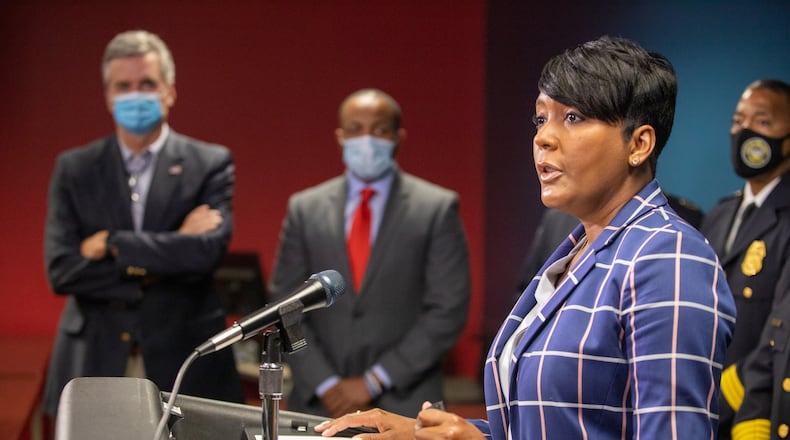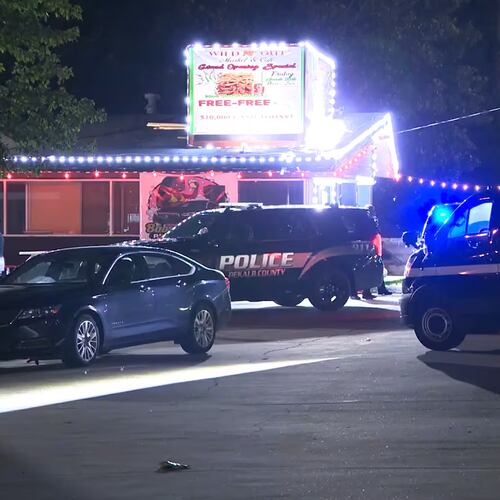Almost three years ago, a simple yet radical experiment was begun in Stockton, Calif., based on an idea floated by the Rev. Martin Luther King Jr. more than half a century ago.
With no strings attached, 125 low-income residents were given $500 a month for two years.
They spent their money on food, clothes, home goods, auto costs and utilities or saved it as a cushion for emergencies. Many were spurred to find better jobs. Most reported feeling a greater sense of well-being and less anxiety and depression, organizers said.
Just as King predicted in 1967, a little help went a long way, the experiment’s backers said.
Today, city leaders from across the country are exploring the possibility of instituting guaranteed income programs to alleviate poverty. Two pilot projects are slated to make their Atlanta debut in the not-too-distant future.
Spearheaded by outgoing Atlanta Mayor Keisha Lance Bottoms and City Councilman Amir Farokhi, the parallel initiatives are aiming to prove that a Stockton-style guaranteed income program can make a difference in King’s hometown. And, they said, it’s needed — the city has ranked among the country’s most unequal for years.
“This is not handing people a check for them to stay home,” Bottoms said in a recent interview. “This is providing people resources to help care for their families, to address food insecurity, to help allow people to be able to afford to live in the city of Atlanta.”
The programs are different from universal basic income, an idea popularized by 2020 presidential contender Andrew Yang. That would allocate money to everyone. Bottoms and Farokhi are pushing initiatives focused on small groups of low-income residents.
Skeptics warn that the concept could be counterproductive when implemented on a larger scale. Some worry it could disincentivize work, while undercutting other antipoverty programs already funded by the federal government.
“Americans believe in the idea of a safety net, by and large,” said Kyle Wingfield, head of the right-leaning Georgia Public Policy Foundation. Instead of debating whether there’s a need for an “even bigger and more expansive” one, he said, public officials should focus on optimizing what’s already in place.
It could be one of Bottoms’ last initiatives before she leaves city hall.
Credit: DBOX for Centennial Yards
Credit: DBOX for Centennial Yards
Approved by the City Council on Nov. 15, her pilot is funded with $2 million from the developers of Centennial Yards, the mega project that will replace the Gulch downtown. It’s also receiving $500,000 from Mayors for a Guaranteed Income, an organization she helped start last year with the former mayor of Stockton.
The program is expected to launch by the end of this 2021 and will provide $500 month to at least 275 low-income recipients for a year. They must earn less than 200% of the federal poverty limit, about $26,000 for an individual and $53,000 for a family of four.
“What we know is $500 for a family that’s living below the margins, in terms of income and poverty levels, can be life-changing,” Bottoms said.
Farokhi’s initiative, the Georgia Resilience and Opportunity Fund, will target, at least initially, the Old Fourth Ward — a neighborhood in his city council district that’s seen seismic gentrification in recent years.
The effort will be focused on Black women because they are historically disenfranchised and have been disproportionately hurt by the pandemic, Farokhi said.
The details are still being worked out, but some participants could receive a lump sum to help with bigger ticket-investments like a down payment on a car or going back to school. Others could receive monthly payments of $800 or so over a two-year period.
Credit: Bob Andres/AJC
Credit: Bob Andres/AJC
“The great promise here is that folks actually know how to best spend their dollars,” said Farokhi, who co-founded a task force that studied guaranteed income. “An income floor unlocks a huge amount of stability, which allows folks to pursue the economic opportunities and jobs that they want to pursue.”
Hope Wollensack, who leads the Georgia Resilience and Opportunity Fund, said organizers eventually would like to expand the program to include a rural and suburban location.
“We really think about this program as how do we give people just a little bit of breathing room,” Wollensack said.
Atlanta and Stockton are not the only places where guaranteed income is being tested. Pilot projects have taken off in cities from Los Angeles to Columbia, S.C.
But Wingfield, of the Georgia Public Policy Foundation, blames recent inflation and labor shortages in part on the passage of massive pandemic relief programs that sent extra money to many Americans in the form of stimulus payments, enhanced unemployment benefits and child tax credits. He worried that a large-scale guaranteed income program could lend itself to additional economic headaches.
“I think it’s a real problem for these programs that I’ve not seen a good answer to, especially when you get beyond the pilot stage,” said Wingfield.
Buzz Brockway, a former Republican state legislator now at the right-leaning think tank Georgia Center for Opportunity, said he’s open to programs that provide a flexible hand-up for low-income families. But he said such initiatives should be focused on people who are working, actively seeking a job or in a training program.
“We think that what’s important is that people begin to earn their way to self-sufficiency,” he said.
About the Author
Keep Reading
The Latest
Featured





